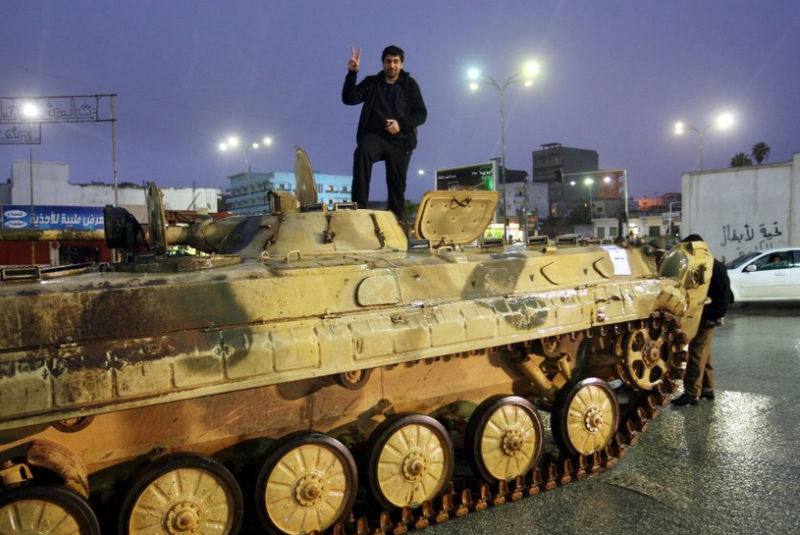Massacre in Libya
NATO intervened to stop the old regime from massacring the rebels. What will it do as the rebels massacre the old regime?
 Some of the recent bloody unpleasantness in Libya reminds us that the world does not divide as neatly into white hats and black hats, good guys and bad guys, as we would like it to. We would like it to divide that way because it would be easier to deal with, conceptually and psychologically, if it did. Policy makers would like the world to divide that way—or at least often talk publicly as if it did—because that makes policies easier to sell. So both the menace from adversaries and the goodness of clients or allies tend to get oversold. And what is not good about clients or allies tends to go unmentioned.
Some of the recent bloody unpleasantness in Libya reminds us that the world does not divide as neatly into white hats and black hats, good guys and bad guys, as we would like it to. We would like it to divide that way because it would be easier to deal with, conceptually and psychologically, if it did. Policy makers would like the world to divide that way—or at least often talk publicly as if it did—because that makes policies easier to sell. So both the menace from adversaries and the goodness of clients or allies tend to get oversold. And what is not good about clients or allies tends to go unmentioned.
The real world's messier and more complicated lines between good and evil, and between who should be supported and who should be loathed, inevitably and inconveniently appear. They are doing so today in Libya in a way that adds extra irony to how the NATO intervention there was sold. The undeniable negative qualities of Muammar Qaddafi, a dictator easy to loathe, were not enough. Added to the pitch for intervention was the prediction of atrocities by the regime if it were left in place. We don't know if the predictions would have come true—there was little or no basis for the more sweeping prognostications of city-wide bloodbaths—but since the beginning of the Libyan civil war opponents of Qaddafi have accumulated a record of violent violations of human rights that should be every bit as disturbing as actions of the former regime. Significant attention has been focused on how Qaddafi died amid the fury and confusion of the dictator's final minutes. Worthy of at least as much attention is what appears to be systematic slaughter of others associated with the old regime, followed by a lack of any apparent effort to investigate what happened.
Specific incidents of such violence, fully worthy of the label atrocity, could not have been predicted, but something along similar lines could have been expected. As Donald Rumsfeld once observed, stuff happens. As Rumsfeld and his colleagues failed to do in an earlier intervention, one should anticipate the stuff. But discussion of atrocities before the intervention in Libya was all focused on what the Qaddafi regime might do, not on what would happen when it was falling or after it fell.
The intervention is now water over the dam. There is little the United States or NATO can do, or should try to do, to directly and physically affect what will continue to be a messy and often violent course of events in Libya. The biggest lesson to draw from the experience is to do a better job of anticipating the nasty stuff, and drawing the appropriate policy conclusions, the next time an intervention in someone else's civil war is being considered.
Meanwhile, we should not try to frame what is going on now in Libya in terms of oversimplified divisions between good people and bad people, and between who deserves support and who deserves condemnation. Actions, not people, should be individually judged. The transitional government will need support, mostly in the form of advice in constructing a civil and political order, if Libya is to avoid unending, bloody disorder. But it also needs to be called to account when it does not do as much as it can to stop atrocities occurring under its nose.
Image by ليبي صح
